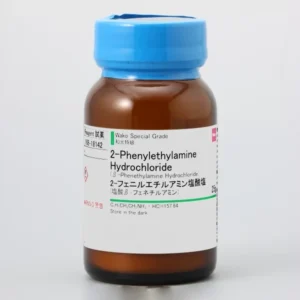⚗️ Indazole Carboxamide (إندازول كربوكسامايد) – Medical Description
Indazole Carboxamide refers to a synthetic cannabinoid class of chemical compounds that act on CB1 and CB2 cannabinoid receptors in the brain and peripheral nervous system. These substances are laboratory-designed analogues that mimic the psychoactive effects of Δ9-tetrahydrocannabinol (THC), the main active component of cannabis.
Although some indazole carboxamides were originally developed for pharmacological research (such as studying pain, inflammation, or neuroreceptor activity), most compounds in this group — including ADB-FUBINACA, AB-CHMINACA, and MDMB-FUBINACA — are now classified as new psychoactive substances (NPS) with no approved medical use.
They have been linked to severe toxicity, including acute psychosis, seizures, cardiovascular collapse, and death, due to their high potency and unpredictable pharmacological profile.
Therapeutic status: No recognized therapeutic use – controlled under Schedule I (Narcotic/Psychotropic Substances).
Chemical group: Synthetic Cannabinoid (Indazole-3-Carboxamide derivative).




